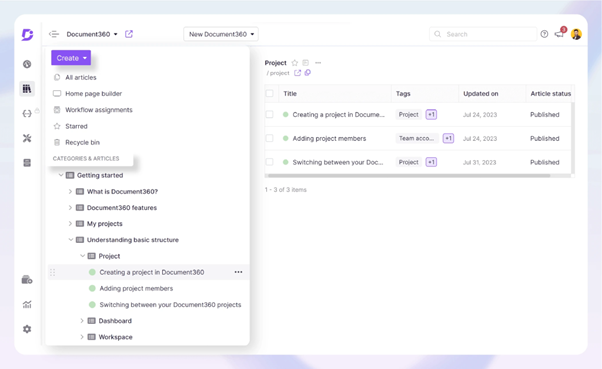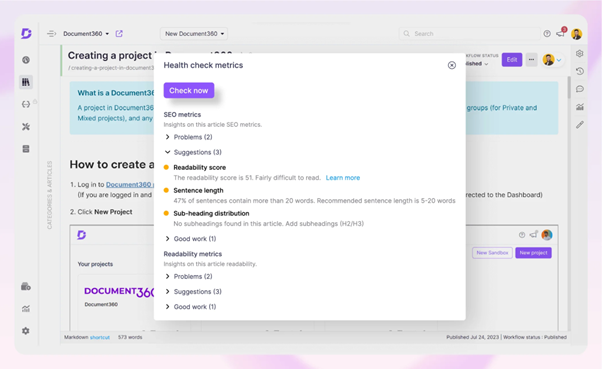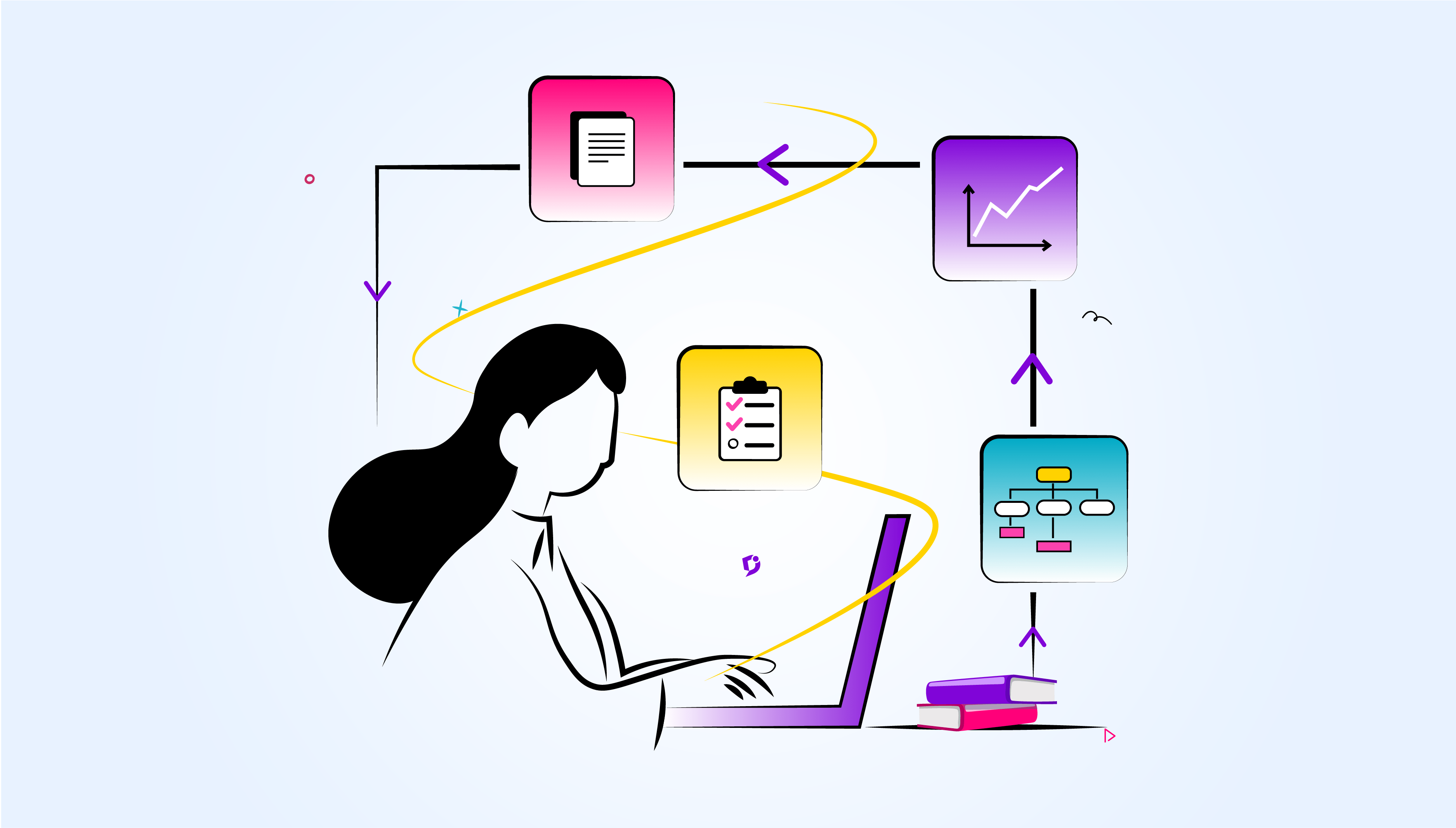Are you facing trouble with a poor patient satisfaction score? Are they not happy with your healthcare process? Then this guide is for you.
We all agree on the point that access to healthcare is a fundamental human right; every country understands this importance. However, the quality of healthcare varies around the world, and many people struggle to access basic healthcare. This problem can arise from overcrowding, lack of funds, lack of training, or other barriers. This eventually leads to a poor healthcare system and poor satisfaction scores.
One true thing is the need to successfully manage the information flowing through core healthcare organizations. Transforming healthcare processes is only possible if you employ Knowledge Management techniques to adequately capture, store, and share knowledge for the benefit of everyone in the healthcare organization, as well as patients relying on your services.
Like many organizations, healthcare institutions are all about long-term planning. They must conserve resources to ensure their services will be available for the needs of future patients and make sure that existing patients are receiving the best possible care. Changes to healthcare policy and the demands of a changing landscape mean that organizations must be even more determined to safeguard their knowledge.
If healthcare professionals such as clinicians, consultants, nurses, and administrators don’t understand their processes and how to improve them, this will result in poor patient outcomes. Knowledge and information are key resources for improving processes, enhancing efficiency, and reducing loss.
Understanding Healthcare Processes
A healthcare process is something that underpins the proper functioning of the organization. It is a set of repeatable steps that affect patient outcomes, the success of which is influenced by the management of knowledge. If healthcare professionals understand how to perform a particular set of tasks and why, that process will succeed as long as they have the right resources.
Improving the healthcare process will ultimately come from more investment, but in the meantime, other process improvements can be achieved through better knowledge management. By more successfully guarding and utilizing the knowledge of healthcare institutions, we can improve patient outcomes and cut costs to improve the proper functioning of the organization.
Processes are also related to the management of patient information, such as their data, which must be protected but also made available to anyone involved in the delivery of care. Since data is important and precious, using the right tools to manage this data, as well as any other knowledge contained within the organization, is critical.
Even small improvements in repeatable processes will result in large gains for the organization. Adopting the proper tools, such as knowledge base software, enables the proper management of knowledge to significantly improve processes, resulting in the conservation of time and money.
Also Read: How to write instructions for Medical Device Documentation
How to Improve the Healthcare Process?
Since health outcomes in countries are directly tied to economic growth, there is no good reason to avoid investing in healthcare infrastructure and care. Improving the healthcare process is ultimately determined by how well you manage the information within your organization, and many gains can be made by simply enhancing how you use and share information.
Centralized Information/Knowledge Hub
First of all, you’ll want to create a comprehensive knowledge base that serves as a centralized repository for medical guidelines, procedures, and best practices. When information is held across the organization in different repositories, the experience of accessing knowledge becomes fractured, and healthcare staff often fail to find the information that they need to care for patients.
Individual staff members may understand how to perform certain processes, but if they leave or become temporarily unavailable, you need that knowledge documented in a centralized hub. When assessing standards and determining quality, repeatable processes arise from the constant availability of knowledge.
IT managers may be concerned about general security, but if you choose a knowledge base that is SOC2 compliant and hosted on a private cloud server, then you don’t need to worry. If all your information is centralized, you have to worry about fewer points of vulnerability for data breaches.
Ongoing Training Initiatives
When healthcare staff are continually trained to do their jobs, you can improve healthcare processes. Standards and bodies of knowledge are always changing, and what is considered sufficient care today may not be tomorrow. Documenting knowledge and ensuring access even after training means staff are always well-informed, and patients can benefit.
When healthcare staff have a chance to progress in their careers, the standard of patient care improves. Clinicians’ job satisfaction is directly related to patient care quality because they are more engaged in their work and more alert to patient needs. You reduce the risk of brain drain to other countries or sectors when clinicians are satisfied.
More than one staff member can be trained to carry out a particular process, which means you always have a backup. Knowledge shared gives greater flexibility to your processes, and staff become empowered to suggest improvements.
Streamlined Workflows
Streamlined workflows supported by the right information mean that healthcare workers can achieve patient outcomes more effectively. Going through the process of documenting knowledge helps you uncover gaps and identify opportunities by tinkering with your workflows. Increased insight into your operations makes you more efficient when helping patients.
Repeatable and consistent workflows result in a better worker and patient experience because you remove excessive steps. When lobbying for more budget, having documented workflows means you can justify improvements because you know exactly where resources are being wasted or under-utilized.
Process improvement is directly tied to streamlining workflows because you can’t have a process that isn’t part of someone’s daily responsibilities. Processes become more relevant and purposeful when healthcare staff are held accountable and freed from completing unnecessary tasks.
Enhanced Collaboration and Communication
Even within the same department, team, or division, siloes can develop which prevent effective collaboration and communication. This is to the detriment of the patient experience since healthcare professionals are failing to share knowledge and pass on best practices about patient care.
Even activities that are not directly related to patients, such as administration and facilities, need healthcare workers to share knowledge, document guidelines and procedures, create training manuals, and more. Each cog in the machine of the healthcare organization must work together to help patients, improve health, and save lives ultimately.
Processes are more effective when participants regularly collaborate and communicate, preventing different departments from working independently and duplicating work. Process improvement can spread through the organization using established communication channels and effect wider change.
Telehealth Support
Telehealth support refers to the more efficient allocation of resources and improved access to care through talking to your care provider live over the phone or video chat. This method of accessing care removes the need for vulnerable patients to travel potentially long distances, which can be costly, tiring, and time-consuming, and allows health professionals to see more patients within the same space of time.
The old process of requiring patients to visit the healthcare organization is not in line with the trend toward remote and hybrid working. For example, if the physician cannot meet, they can still conduct consultations through phone or live chat and avoid any disruption to patient care. Implementing this new process may disrupt patients at first, but it is ultimately more efficient for everyone.
Giving patients wider access to care is a key goal of healthcare process improvement and is the ultimate aim of any healthcare institution. Telehealth support helps clinicians serve more patients and improve outcomes.
Also Read: Create Standard Operating Procedures for Clinical Practice
FAQs and Troubleshooting Guides
FAQs and troubleshooting guides are on hand to help professionals deliver patient care and complete administrative or facility tasks. A doctor might be tasked with diagnosing patients, but if the patient database containing records refuses to work, then their role will be compromised. Troubleshooting or finding answers to common FAQs is crucial to running the organization.
Even from the patient side, the ability to find FAQs and guides relating to the delivery of their care can improve the experience vastly while waiting for access to a healthcare professional. Long wait times and overcrowding endanger patient satisfaction and their health or survival, but documenting answers to common questions helps patients take charge of their own care.
Data Security and Privacy Measures
We’ve all heard the horror stories of healthcare organizations compromising patient data, which is usually from vulnerabilities in outdated systems or the mistake of a human agent. If you invest in the latest software and observe data security and privacy rules, you have very little to worry about regarding patient data.
Taking care of patient data means using the latest information technology to improve patient outcomes and eliminate loss. Manually storing paper patient records, for example, is both wasteful and unsustainable in the long term. You can also choose the best software solution for data security and privacy that complies with the most stringent standards.
Check out our video, AI-Powered Healthcare Knowledge Base:
How Document360 Can Help in Healthcare Process Improvement?
Document360 can help you with your healthcare process improvement by documenting key knowledge efficiently and effectively. You can create a medical knowledge base for your healthcare organization easily and quickly with Document360 and instantly publish an article without extensive support from your IT department.

If you want to document a troubleshooting guide, training manual, internal guidelines, Standard Operating Procedures, and more, Document360 can help you. With an easy-to-use interface and the ability to improve patient information access 24/7 across the globe, Document360 enhances the patient experience as well as makes it far easier for healthcare professionals to do their jobs.
For healthcare organizations searching for reliability, uptime, accessibility, and compliance, Document360 should be your first choice. As a knowledge base tool, you can easily create content, organize it, and create different versions to enhance the patient and worker experience.
Consider these top features of Document360:
- Analytics – gain insight into the nature of your knowledge base visitors and understand article performance
- Workflow – improve how articles are published by creating a workflow and assigning a status
- SEO – articles can be indexed by search engines for greater visibility online
- Integrations – integrate with top tools in the ecosystem such as the help desk, chatbot, or commenting tools
- Drive – store your knowledge base files securely in Drive and manage, delete, or remove files
- Health check metrics – check the health of your articles with readability metrics and keyword optimization

Also Read: How is knowledge management used in healthcare?
How Document360 Helped Better Life Partners: A Success Story
Better Life Partners found Document360 as their right tool, mainly because it meets all their needs. Emily-Rose, who is a Product Manager at Better Life Partners, mentioned that with Document360, she can publish articles, share them with team members and update them as needed. It is also easy to export the articles to PDF and print them whenever there is a need.
“Document360 is the best fit for Better Life Partners by saving a lot of time, making the tasks easier, and organizing the articles more effectively.”
– Andrew Warner
Community Education Manager, Better Life Partners
Conclusion
Knowledge-based tools such as Document360, can improve your healthcare processes and conserve your resources so that knowledge is managed more effectively within the healthcare organization. Former worries about the reliability and security of using SaaS in healthcare have been overcome by the developments in the latest technology, ensuring protection and scalability.
Patients appreciate it when their healthcare organizations improve their processes, allowing them to provide better care through advanced treatment, reducing wait times, and increasing access to vital services. Healthcare is one of the most important sectors in which knowledge needs to be managed and has some of the most potential for efficiency gains.
It’s critical not to rest on your laurels and allow the quality of patient care to stagnate. By staying ahead of the latest practices in process improvement and implementing knowledge management to enhance the flow of information through the organization, your healthcare institution will operate more efficiently.





 –
– 

